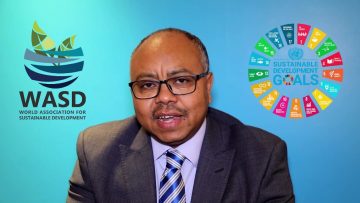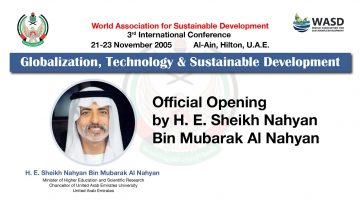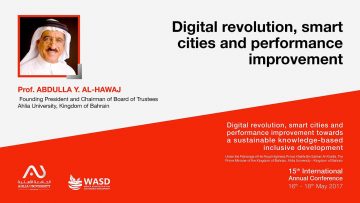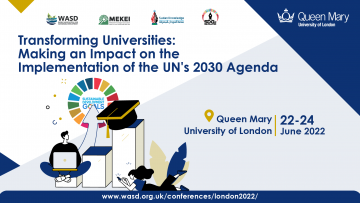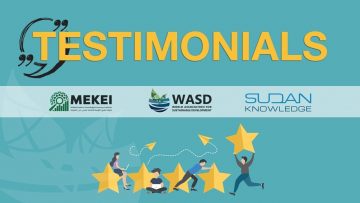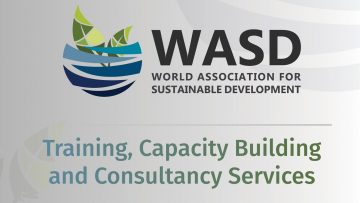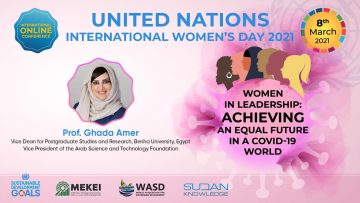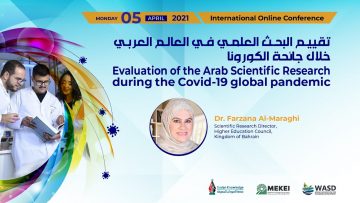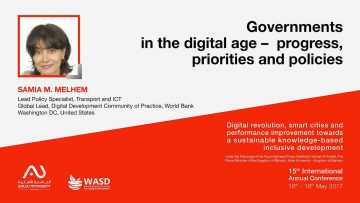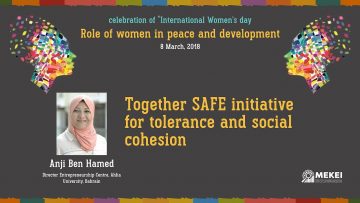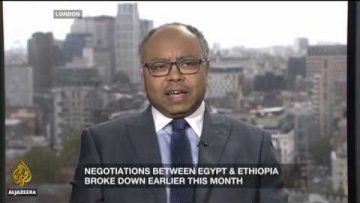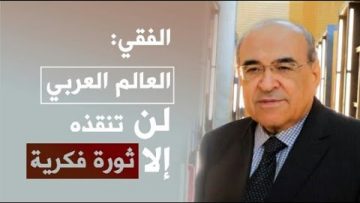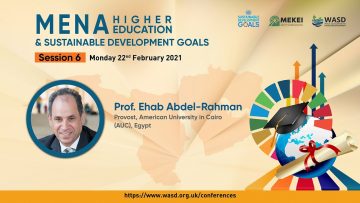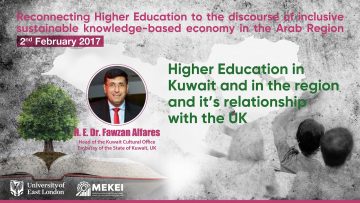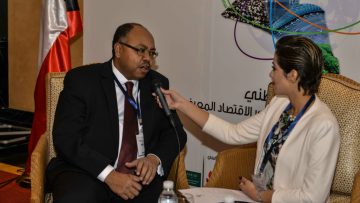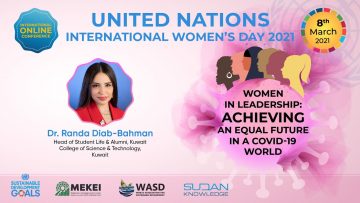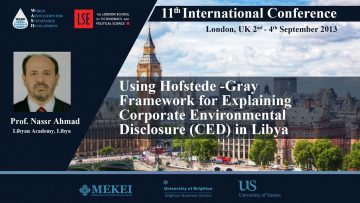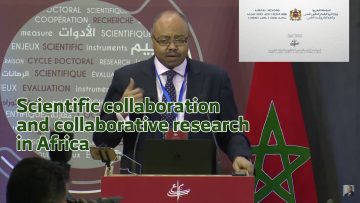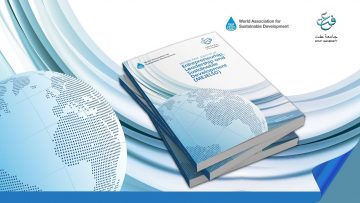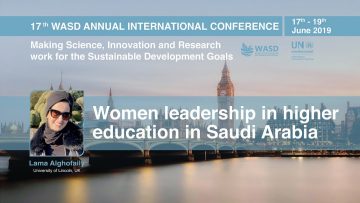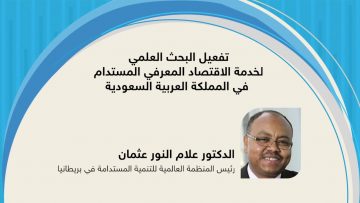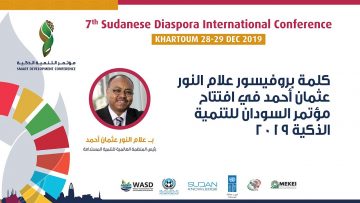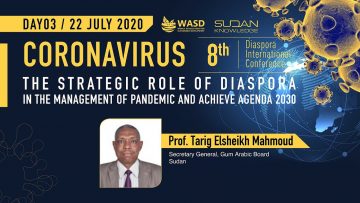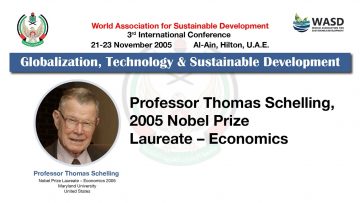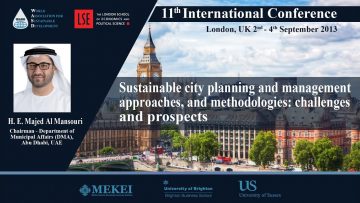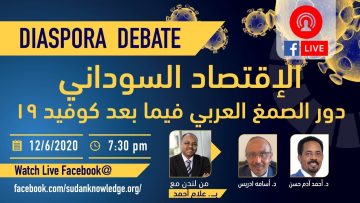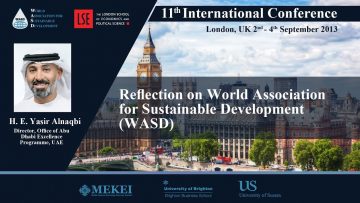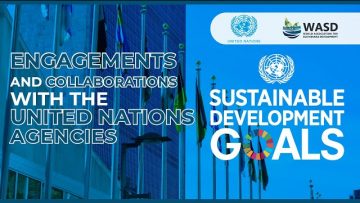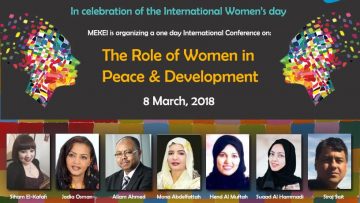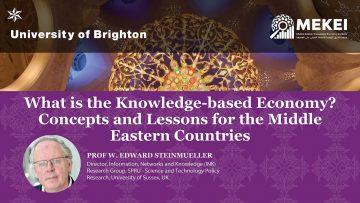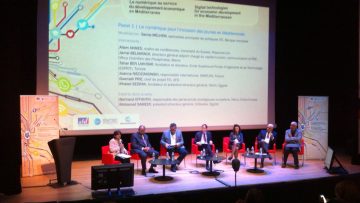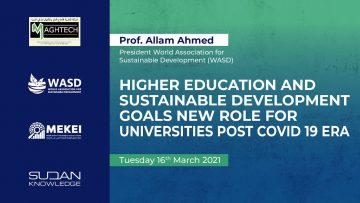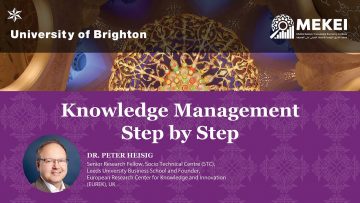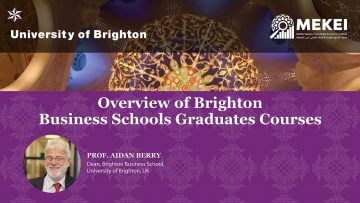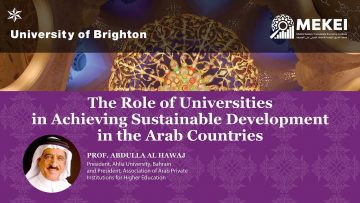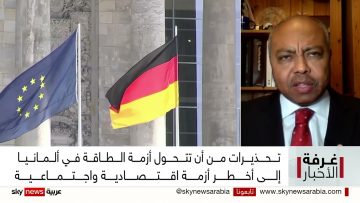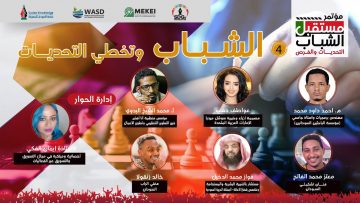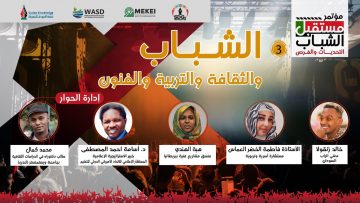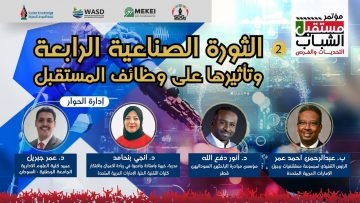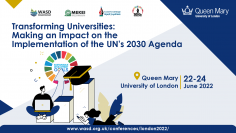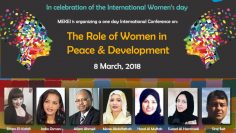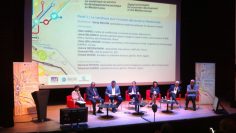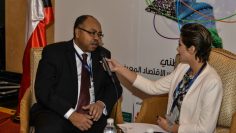
Reconnecting Higher Education to the discourse of inclusive sustainable knowledge-based economy in the Arab Region
Thursday, 2nd February 2017 from 14:00 to 17:00 (BST)
Board Room (EB 1.39) Dockland Campus, University of East London, London, United Kingdom
REGISTRTAION CLOSED13:45-13:55 Arrival
14:00-15:30 Session One
15:30-15:45 Break
15:45-16:45 Session Two
Target audience Academic, researchers, higher education officials, students, professionals, research, youth, NGOs, civil society groups, businesses, and other stakeholders.
Focus Arab Countries
Partners
World Association for Sustainable Development (WASD)
Middle Eastern Knowledge Economy Institute (MEKEI)
Kuwait Cultural Office, UK
Centre for Innovation Management and Enterprise (CIME), University of East London
Welcome and Overview
Dr. Randolph Cooper, Dean, Royal Docks School of Business and Law, University of East London
Professor Allam Ahmed, Director MEKEI and President WASD
UEL experience and approach for international partnership
Ian Bathgate, Director, Centre for Innovation Management & Enterprise, UEL
Higher Education in Kuwait and in the region and it’s relationship with the UK
H. E. Dr. Fawzan Alfares, Head of the Kuwait Cultural Office, Embassy of the State of Kuwait, UK
Managing knowledge and innovation for sustainable development in the Arab World
Professor Amer Al-Roubaie, Advisor for Capacity Building & Academic Collaborations, Faculty of Business and Finance, Ahlia University, Kingdom of Bahrain
Knowledge-based economies and youth employment challenges : what role of HEI in the MAGHREB
Professor Abdelkader Djeflat, Founder of Maghtech.org, University of Lille, France
Higher education and knowledge economy in Qatar
Dr. Hend Al Muftah, Vice President for Administration and Finance, Doha Institute for Graduate Studies, Qatar
Ahlia University Bahrain Case Study
Dr. Thaira Al Shirawi, President Assistant for Marketing, Media & PR, Ahlia University, Kingdom of Bahrain
Discussion and reflection
H. E. Professor Reem Bahgat, Cultural Counsellor & Director, Egyptian Bureau for Cultural & Educational Affairs, UK
Dr. El Bashier Sallam, Lead Health Specialist, Human Development Department, Islamic Development Bank, Kingdom of Saudi Arabia
The Keynote Seminar aims to critically discuss the future of higher education (HE) in the Arab countries towards achieving sustainable knowledge-based inclusive development in the region. The Keynote Seminar will therefore explore the role of academic and research institutions as recommended by the World Bank’s World Development Report 2016 to enable countries in the region reap the digital benefits form the global growth in the digital economy particularly for the country’s Digital Natives (Youth). Moreover the Keynote Seminar also aims to discuss a range of questions relating to strengthening the linkages between universities and research institutions as well as reconnecting these institutions to the knowledge-based economy (KE) discourse by exploring the role of HE institutions in transforming the Arab countries into knowledge-based economies. In doing so, a number of issues relating to the role and relevance of HE institutions to the contemporary discourse of Arab countries’ sustainable inclusive knowledge-based development will be examined such as: what is the role of Arab’s HE institutions in supporting and enhancing the process of economic and social development in the region?; what are the major obstacles that HE institutions face in Arab countries?; are there governmental components to these? if so what?; are there societal components to these? if so what?; and how can these obstacles best be overcome?
The Keynote Seminar brings together senior and high level intellectual and practice-based contributors who will help develop a framework for the analysis of the role of Arab HE institutions in achieving sustainable inclusive knowledge-based development and help policy-makers to constructs an “ideal role” for HE institutions in Arab countries and outlines how performance can be evaluated in pursuit of the goals of KE. There are clearly opportunities for academic and research institutions and societies in Arab countries to support and enhance the process of transforming the Arab countries to advanced, knowledge-based societies led by sustainable innovation and social advance. As knowledge production sites, the University’s engagement in national economic growth and the broader development agenda is nothing new. Ever since the beginning of modern science, knowledge has been sought from the University and today, more than ever before in human history, the wealth – or poverty – of nations depends on the quality of its higher education. According to UNESCO, universities are not just for teaching purposes, but also contribute through research in science, technology and innovation (STI) and in the social and human sciences, to the advance of knowledge, to the creation of new knowledge, to cultural development and fulfillment, to the solving of the problems with which the society is faced, to sustainable development (SD).
Whilst there has been a tremendous growth in size, the expansion of HE in almost all Arab countries has caused average quality of education to decline as resources are stretched increasingly thin. Essentially, the expansion has been less differentiated and, therefore, ill-planned to confront emergent development needs. Rather, what is evident is a stupendous replication of traditional disciplinary-based techniques of knowledge production. These have, nevertheless, increased the richness of knowledge about the universe we live in but without apparently translating or transforming the catchment societal environments in terms of measurable productive capacities. There are also grave concerns that HE in most Arab countries is becoming increasingly obsolete which, in part, is why development programmes are stultified even from the outset. Therefore, Arab HE institutions must confront the ‘new realities’ evident in the environments in which they operate. Many scholars and policy makers have called for a transformative innovation agenda which embraces radical change for new synthesis and approaches for transforming HE in the Arab countries.
Youth in the Arab region are growing fast and governments in the region expect their universities and research institutions to make a leading contribution by producing graduates ready to grasp the various opportunities generated in the digital economy. It is therefore important that all Arab HE institutions and societies to consider the youth in all their curriculum design, programs development as well as fulfilling their role as major agents in the realisation of the various future strategic visions in most countries in the region. According to recent reports by the World Bank, with a large youth representation and youth unemployment ratio, the Arab region faces a potential crisis and the education sector should be reformed to include specific qualifications and specialisations in the digital economy. The private sector can play a larger role in helping governments and academia focus investments on high-priority and high demand skills, thus young students are ready for employment the moment they graduate.
Many consider the Arab region as one of the most important emerging parts of the world economy in the 21st century. The Arab region is strategically vital as it produces the majority of the world’s oil. However, despite the region’s oil, most Arab countries score lower on Human Development Index (HDI) world ranking, with GDP, productivity and investment rates well below the global average. Despite abundant financial and human capital, most Arab countries still lack adequate scientific and technological infrastructure to absorb, apply and create knowledge and disseminate information. At present, almost all knowledge and technology used in almost all Arab countries is produced outside the Arab region reflecting high dependency of Arab countries on outside knowledge and technology. A widening knowledge gap augurs poorly for future development of Arab societies stymied by an inability to create knowledge economies that gain benefits from the opportunities offered by globalization. It is, therefore, becoming widely accepted that the dominant economic model of the region – based on the public sector, oil incomes and workers’ remittances – is not up to the challenges of modern globalisation and the needs of advanced knowledge-based societies.




